
Back in Advent last year, on Sunday 16th December 2018 (the 3rd Sunday of Advent) I preached a sermon on the lectionary readings (Zephaniah 3.14-20, Philippians 4.4-7, Luke 3.7-18) which I felt spoke powerfully into the political turmoil surrounding Brexit. I meant to turn it into a blog at the time but got swept up in the busyness of Christmas and forgot. Now, after a tumultuous week in Parliament, as the clock ticks down to 29th March when we are due to leave the EU, I have been prompted to dig it out. Sadly, but perhaps unsurprisingly, my words from December seem just as relevant today as they were then. So I offer them now as a suggestion of how faith might guide us through the coming days….
I wonder whether this sounds familiar….
A small nation seeking its own sovereignty, fed up with being ruled from a government in Europe, resenting paying hard earned taxes to a foreign power. At home, there are lots of different political groups, each with their own solution to what the future could and should look like, plotting to overthrow those in power.
Yes, I’m sure you’ve guessed right…. 1st century Palestine in the time of our Gospel reading and the ministry of John the Baptist…. Although, of course, you might also think that it’s an apt description of our beleaguered nation at the moment!
The history of God’s people as told in the Old Testament is a story of a people who have to get used to living in turbulent times when all they really want is a quiet life, filled with peace and joy and hope and love. It’s a story of people who swing from being faithful followers of God, particularly when he appears to give them what they want, to turning their back on him, particularly when life gets difficult.
To call people back to faithfulness, God used prophets to deliver his message – and there is a long tradition of prophets who speak out against the popular culture and way of thinking. They challenged, often with hard words, both the political and royal powers and ordinary folk – urging them to turn back to God, to give up their wicked ways, to remember the poor, the downtrodden, the foreigner. They would speak of the judgement that God would pass on those who refused to follow him. As you can imagine, they were not always very popular. But, they also delivered messages of hope – like the one that the prophet Zephaniah delivered, as heard in our first reading. This was a time when the holy city of Jerusalem had been overrun by people worshipping foreign gods and the morals and culture of the city were changing dramatically. There was also a sense of impending invasion from foreign armies. Into this environment of fear and confusion, Zephaniah spoke; ‘The king of Israel, the LORD, is in your midst; you shall fear disaster no more.’ He goes onto encourage people…. ‘ I will remover disaster from you…. I will deal with your oppressors….and I will save the lame and gather the outcast’” Some people listened and returned to God, and some didn’t.
Over six hundred years later, John the Baptist, is doing the same thing as Zephaniah. He has been called by God as a prophet to speak to people who are living in troubled times and who have turned away from God. In our Gospel reading, he is speaking hard words to the crowds who have come out to see him, hoping for an easy solution for the political trouble they are in. Instead of issuing platitudes, he doesn’t mince his words. ‘You brood of vipers!’ he says. Now you might expect them all to turn round and go back home, but they ask John what they should do. If they were hoping to find someone who would mobilise them to turn against the ruling powers, they were disappointed. What they heard instead was someone saying that they had to change themselves. They had to examine themselves and reflect on how they had turned away from God. The only solution, said John, is for them to change their way of thinking and behaving. ‘Whoever has two coats must share with anyone who has none; and whoever has food must do likewise.’ Even tax-collectors came to be baptized, and they asked him, ‘Teacher, what should we do?’ He said to them, ‘Collect no more than the amount prescribed for you.’ Soldiers also asked him, ‘And we, what should we do?’ He said to them, ‘Do not extort money from anyone by threats or false accusation, and be satisfied with your wages.’ John pulls no punches as he warns of the day when God will judge all women and men. To bring about radical change in the life of their nation and to be set right in the eyes of God, to be judged favourably, John proclaimed that justice and mercy, truth and righteousness had to be placed at the centre of everyone’s life – both in their personal lives and in the public life of their communities and the nation.
So going back to that description I gave at the beginning of a small nation in turmoil, as we look back on the last two years, particularly this last week and look ahead to the coming weeks and months, what does John the Baptist have to say to us here and now? Now I guess that you, like me, are heartily fed up with the word ‘Brexit’ and you may have hoped that this morning in church you would escape the political mess that we are in. However, I don’t think that this is right. I always struggle with the idea that religion should be kept separate from politics. If we can’t bring every aspect of our life before God, including the way that our lives are governed at local, national and international level, then our faith doesn’t count for much. We are in effect saying, that God can have a role in part of our life and in part of the life of our world but not everywhere. This is clearly not God’s view – the prophets show us that God wants to be involved in absolutely every part of human existence, and that actually it is only God who can rescue us from the mess that people and nations regularly get themselves into!

So I make no apologies for talking about Brexit this morning. However, it’s not my job to tell you who I think is in the right or the wrong, or to offer an analysis of why we’re in the mess we are in. But I do think that as a preacher, it’s my job to help us think how God wants us to respond, and I think that part of the answer is to listen out for those are speaking prophetic words like Zephaniah and John the Baptist…. At the heart of their message is a courageous call for speaking the truth; a hunger for justice; and a willingness to the suffer for the cause of right – words from our collect this morning. Whether we want to leave or remain in the EU – who should we listen to? John and Zephaniah make it quite clear – it is those who ‘will save the lame and gather the outcast’, it is those who remember the poor, who seek justice, who don’t oppress others, who show mercy.’ Those are the people, who are speaking God’s words into our current situation – so our job is not to listen to those who speak loudest or who sell the most papers, but to those who are prophetic, who remind us of God’s values.

I think that the other part of the answer is given to us in our reading from Paul to the Philippians: “Do not worry about anything, but in everything by prayer and supplication with thanksgiving let your requests be made known to God.” As someone said to me this week, the power of prayer is amazing – and so I think that this is a time when we need to really believe this. We need to pray – for our Prime Minister (Whether you agree with her or not), for our Government and Opposition parties (whether you agree with them or not, for all MPs and especially Angela Rayner our MP (whether you agree with them or not), for the European Union (whether you want to remain part of it or not). Pray for them, ask God to guide them in the ways of truth and justice. Pray for peace and reconciliation between those who hold differing view. Pray for truth, and only the truth, to be spoken and printed in the media. And if you don’t have the words, just say ‘God help us!’ and he will know what it is your heart and mind. And as you pray, as all of us pray, may we know the peace of God which surpasses all understanding guarding our hearts and minds (and that of our nation) in the Christ Jesus.’ Amen.
Intercessions:
In joyful expectation of his coming to our aid
we pray to Jesus.
Come to your Church as Lord and judge.
We pray for all who lead our Church, for our Archbishops and Bishops and Archdeacons, for all who minister faithfully in parishes across our land.
Help us to live in the light of your coming,
Give us courage to speak out your words of justice and mercy
and give us a longing for your kingdom.
Maranatha: Amen. Come, Lord Jesus.
Come to your world as King of the nations.
We pray for our Prime Minister, our Parliament and the leaders of the European Union, for wisdom in all the discussions and decisions that lie ahead as the future of our nation is determined.
We ask that before you rulers will stand in silence, and hear your voice urging that the poor, the marginalised and the oppressed are not overlooked.
Maranatha: Amen. Come, Lord Jesus.
Come to the suffering as Saviour and comforter.
We pray for …
Break into our lives,
where we struggle with sickness and distress,
and set us free to serve you for ever.
Maranatha: Amen. Come, Lord Jesus.
Come to us as shepherd and guardian of our souls.
We remember …
Give us with all the faithful departed
a share in your victory over evil and death.
Maranatha: Amen. Come, Lord Jesus.
Come from heaven, Lord Jesus, with power and great glory.
Lift us up to meet you,
that with all your saints and angels
we may live and reign with you in your new creation.
Maranatha: Amen. Come, Lord Jesus.
Silence is kept.
Come, Lord Jesus, do not delay;
give new courage to your people,
who trust in your love.
By your coming, raise us to share in the joy of your kingdom
on earth as in heaven,
where you live and reign with the Father and the Spirit,
one God for ever and ever.
Amen.



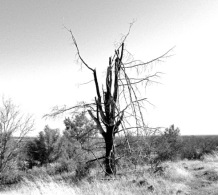
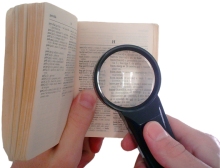 be realistic. I cannot solve the problems of the world alone and if I even try to think about all of them, it’s not particularly healthy and will leave me feeling overburdened and ineffective. What I need to have is focus, to make a different where I can, where I have the ability to change hearts and minds and circumstances – whether that’s through action, words, financial donations, prayer. It’s about being sharp and having teeth, being strategic and realistic, being prophetic and recognising that I am not utterly powerless in playing my part in building God’s kingdom.
be realistic. I cannot solve the problems of the world alone and if I even try to think about all of them, it’s not particularly healthy and will leave me feeling overburdened and ineffective. What I need to have is focus, to make a different where I can, where I have the ability to change hearts and minds and circumstances – whether that’s through action, words, financial donations, prayer. It’s about being sharp and having teeth, being strategic and realistic, being prophetic and recognising that I am not utterly powerless in playing my part in building God’s kingdom.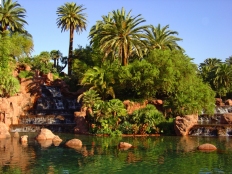 the valleys; I will make the wilderness a pool of water, and the dry land springs of water. I will put in the wilderness the cedar, the acacia, the myrtle, and the olive; I will set in the desert the cypress, the plane and the pine together.” This is just beautiful – a vision of paradise! It’s the hope I need to cling too when I doubt or fear. God has always been faithful in the past, God has always kept his promises even if we can’t always understand how he is at work. I do believe that it is not beyond God to one day bring heaven to earth for all to experience – but I don’t know when this will be. This Advent, perhaps my challenge is practice waiting… To keep watchful for the beautiful glimpses of paradise, of heaven that are to be found – a promise of God’s glory, and to remember that while there is some light, there can never be complete darkness.
the valleys; I will make the wilderness a pool of water, and the dry land springs of water. I will put in the wilderness the cedar, the acacia, the myrtle, and the olive; I will set in the desert the cypress, the plane and the pine together.” This is just beautiful – a vision of paradise! It’s the hope I need to cling too when I doubt or fear. God has always been faithful in the past, God has always kept his promises even if we can’t always understand how he is at work. I do believe that it is not beyond God to one day bring heaven to earth for all to experience – but I don’t know when this will be. This Advent, perhaps my challenge is practice waiting… To keep watchful for the beautiful glimpses of paradise, of heaven that are to be found – a promise of God’s glory, and to remember that while there is some light, there can never be complete darkness.










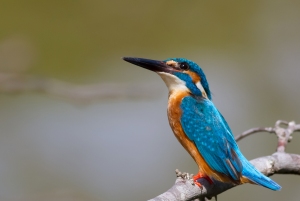 Until a couple of days ago, I’d never seen a kingfisher in this country and I’d put this as one of the things to do on my ’50 things @ 50 list’. Having googled the best places to see this beautiful bird in the northwest and waking up to sunshine, Roger and I arrived at Pennington Flash.
Until a couple of days ago, I’d never seen a kingfisher in this country and I’d put this as one of the things to do on my ’50 things @ 50 list’. Having googled the best places to see this beautiful bird in the northwest and waking up to sunshine, Roger and I arrived at Pennington Flash.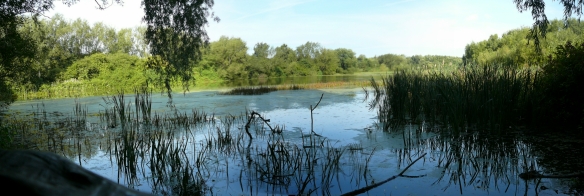 The first thing I noticed was the peace and calm – there was a kind of thickness to it, like a warm duvet enveloping me in comfort. The second thing was the silence – none of the sounds I’m used to of sirens and cars and people – just bird song and rustles in the trees. The third thing was a bird landing on a branch to the side of the hide. It was in the shade so all I could see was the silhouette but I realised this was it! The disproportionately long bill compared to its body, a fairly squat body. After a few moments it flew across the pond and the flash or iridescent blue confirmed that we’d been blessed by the presence of a kingfisher. I hadn’t been challenged with a long wait, just ten minutes to have an encounter with the bird I’d long to see for many years. The moment was soon gone though as a group of birders arrived and filled the hide with their chatter. We slipped away rejoicing.
The first thing I noticed was the peace and calm – there was a kind of thickness to it, like a warm duvet enveloping me in comfort. The second thing was the silence – none of the sounds I’m used to of sirens and cars and people – just bird song and rustles in the trees. The third thing was a bird landing on a branch to the side of the hide. It was in the shade so all I could see was the silhouette but I realised this was it! The disproportionately long bill compared to its body, a fairly squat body. After a few moments it flew across the pond and the flash or iridescent blue confirmed that we’d been blessed by the presence of a kingfisher. I hadn’t been challenged with a long wait, just ten minutes to have an encounter with the bird I’d long to see for many years. The moment was soon gone though as a group of birders arrived and filled the hide with their chatter. We slipped away rejoicing.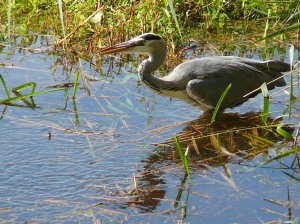 Prayer can be just like this – a long, long wait. But sometimes, we have that encounter with God very quickly; we receive an image or an idea or some words as soon as we’ve sat down. What do we do then? Once I’d seen the kingfisher there was almost no point staying – I’d done what I’d set out to do. But we stayed, and were free to look for other things – the unexpected family of moorhens and the heron feeding right in front of us. If we’d gone home straight away, we’d have missed these further delights. But we also had time to reflect on the gift of the kingfisher without our focus turning to more mundane things like driving home or what to have for lunch. So too with prayer – if we sense that God has spoken to us quickly, we needn’t stop praying. Instead, we can relax with what we have received, mull it over, ponder it – and who knows, God might have other treasures in store for us as we sit.
Prayer can be just like this – a long, long wait. But sometimes, we have that encounter with God very quickly; we receive an image or an idea or some words as soon as we’ve sat down. What do we do then? Once I’d seen the kingfisher there was almost no point staying – I’d done what I’d set out to do. But we stayed, and were free to look for other things – the unexpected family of moorhens and the heron feeding right in front of us. If we’d gone home straight away, we’d have missed these further delights. But we also had time to reflect on the gift of the kingfisher without our focus turning to more mundane things like driving home or what to have for lunch. So too with prayer – if we sense that God has spoken to us quickly, we needn’t stop praying. Instead, we can relax with what we have received, mull it over, ponder it – and who knows, God might have other treasures in store for us as we sit.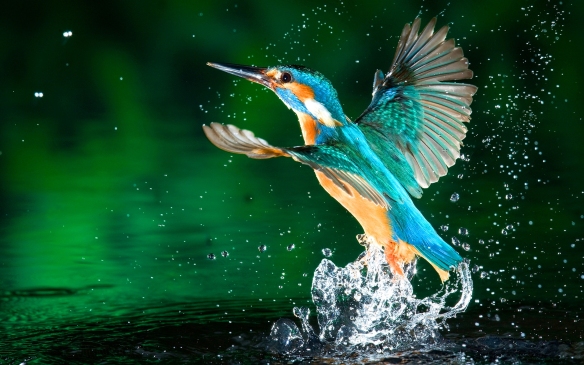

 When babies are born prematurely, as soon as they are stable enough, the best way for them to thrive is to have regular skin to skin contact with a parent. Resting on their mum or dad’s chest, they pick up their parent’s heartbeat and their own heartbeat strengthens. This means that they grow stronger more quickly and feel less pain. The heartbeat of the parent, beating as one with theirs brings life, real treasure! We could apply the same image to us and God. That we need to spend time resting with God, letting our heart beat settle so that it matches God’s and that as we do this, his values and desires become ours and we truly find that heavenly treasure.
When babies are born prematurely, as soon as they are stable enough, the best way for them to thrive is to have regular skin to skin contact with a parent. Resting on their mum or dad’s chest, they pick up their parent’s heartbeat and their own heartbeat strengthens. This means that they grow stronger more quickly and feel less pain. The heartbeat of the parent, beating as one with theirs brings life, real treasure! We could apply the same image to us and God. That we need to spend time resting with God, letting our heart beat settle so that it matches God’s and that as we do this, his values and desires become ours and we truly find that heavenly treasure.